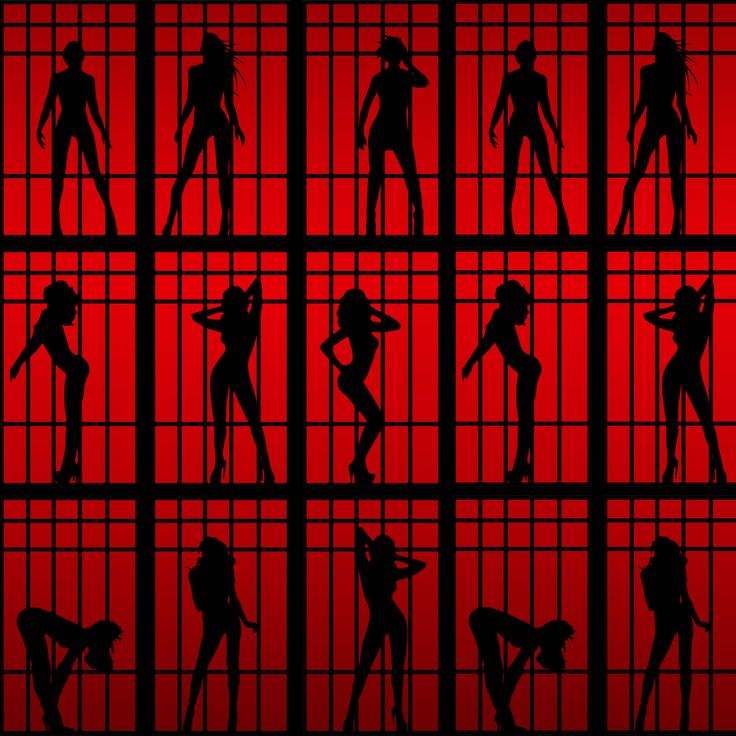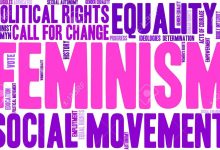Prostitution and the Illusion of Choice

|
Getting your Trinity Audio player ready...
|
The rebranding of prostitution into ‘sex work,’ trussed by the ‘world’s oldest profession’ label, is perhaps the most insidious and successful propaganda in the history of modern feminism. The co-option of critical feminist languages, such as empowerment and bodily autonomy, into adorning sashes serves no purpose except to erase the patriarchal underpinnings of the existence of the sex trade, which, rather, should be described as the world’s oldest oppression.
There are 52 million prostitutes in the world today, and 80% of those are women. By contrast, 95% of sex buyers are men, and the global sex industry is worth $99 billion annually. This is unbridled male desire, finding root and expression in capitalistic models. For every 100,000 prostituted women, 204 are killed yearly. Compared with three of the most dangerous jobs in the world (per 100,000 persons) – deep-sea fishing at 100 deaths, logging at 97 deaths, and aircraft pilots/engineers at 58 deaths – prostitution is categorically the most dangerous ‘job’ in the world. 62% and 73% of prostituted persons report rape and physical assault from johns², respectively, and 85% have a history of childhood sexual abuse.
Women in prostitution also show symptoms of posttraumatic stress disorder in ranges observable in the Vietnam War (1954-75) veterans. With half (one-third in Nigeria) of global prostituted persons living with HIV, varying but high levels of sexually transmitted diseases (STDs), as well as 80% per cent of the demographic being dependent on drugs, leading to compounding mental health crises, it is apparent that the sex trade festers violence against women in astronomical, catastrophic degrees uncommon to the general population, and this bear no correlation to the legality or illegality of the industry.
The sex trade is male dominance manifested—physically, economically, mentally, and politically. It is the commodification of women’s bodies in service of male sexuality, and there is no greater indicator of women’s social inequality to men than the phenomenon of prostitution – from the ancient to post-technological world.
Prostitution traces its origin to early human settlements. Life was shifting from an egalitarian hunter-gatherer society to an agrarian society. Farming was growing, and food was surplus, necessitating trade. This, in turn, led to more resources to build a structured society that accommodates the human spectrum of interests, from war to music. This transition also saw the institutionalisation of male hegemony, as control and expansion were social values at the time. Due to biology, women naturally fell victim to this system. They came to be seen as properties, supplying men’s desire for intimacy and an heir. The women who were not bartered off in marriage to a (familial) patriarch were sold for sex/slavery to strange men.
In present times, much hasn’t changed about this dynamic. A society where equitable distribution of resources exists is antithetical to the basis of prostitution. Because men overwhelmingly own the means of production and a larger proportion of socio-economic wealth, their demand for sex is rooted not only in economic privilege but also in sexism.
Background studies of prostituted women reveal dire circumstances—an interplay of poverty, abuse (especially sexual), and illiteracy. This fact puts a dent in their free will to go into prostitution. The alternative to not choosing prostitution is to die or go hungry or be abused by guardians, and so, ‘sex work’ as an act of survival, for these women, is the only option. Sex being the work, too, given the dynamic of oppressive, patriarchal sexual relations between men and women objectively makes the sex industry a disempowering, anti-feminist system. It is an industry filled with women of base social standing – poor, uneducated, vulnerable, and from ethnic minorities, with no economic prospects to be upwardly mobile. This makes them easy targets for grooming by pimps, who usually scout them as teenagers.
The subject matter of choice in feminism has been a centrepiece. It is as circumstantial as hotly debated, but it is obvious—regardless of one’s assumed position on the topic—that choices do not exist in a vacuum. They result from conformity or, occasionally, rebellion, and women—feminists or otherwise—are not exempt from this. Women make choices that align with traditional gender expectations all the time, and feminists critique this viz a viz their impact on the end goals of equality and liberation; for this reason, to examine the sex industry and its female participants is not tantamount to an infantilisation of their agency. A ‘conditioned choice’ is not an oxymoron, and women choosing to engage in prostitution is one, in light of the structural and psychological context explicated above.
A choice made in the absence of favourable options cannot be said to be true, free and informed. Survival-driven sex clashes with intimacy and sexuality, both of which require mutual consent, understanding, and the grace to be oneself or make mistakes with a partner. To achieve social equality between the sexes, it is pertinent that the message of sexual consent and shared satisfaction remain consistent. Men cannot be required to seek consent that is non-negotiable and comprehend that it can be withdrawn anytime or pay attention to the sexual fulfilment of their partners, whilst a subset of women are available for them to acquire for selfish reasons on a contract basis.
Quotes from male sex buyers on the forums of legalised brothels in Germany prove this conflict of interest – between feminism’s ideal of women as people having intrinsic worth and can enjoy sex as well and the degrading nature of prostitution, foisted by men. To be critical of sex work, therefore, is not about the fact that sex is a shameful act but that sex, in prostitution, is procured by men, the majority of whom are patriarchal/misogynistic and view penetration as an act of dominance/desecration.
Some of them write³:
“Her body isn’t as firm and tight and trim as it should be for a 22-year-old, no chance, more like 32.”
“If you like shagging wrinkly skinny granny types, then pay her a visit.”
“She was not the least bit interested… cold and monosyllabic… as lively as a corpse.’’
The feelings of the women bought in prostitution also reflect these acts of abuse and subjugation:
“15 years later, I still get flashbacks, nightmares, panic attacks and have a deep mistrust of men.”
“I’d numb my feelings… I’d leave my body and go somewhere else with my thoughts and feelings until he got off me…”
Brenda Myer-Powell, human trafficking activist, recounts: “I was shot five times, stabbed more than 13 times, was beaten unconscious several times, had my arm and nose broken, and two teeth knocked out…”
It comes as no surprise, then, when nearly 90% of prostituted women wish to quit “the life.”
Prostitution is neither a job nor sex because it is a phenomenon that flouts the conditions for employment and is predicated upon the exchange of money or favour for sexual benefits. The material gains are functioning as factors to forego enthusiastic consent.
Prostitution is also unlike any other job because the ‘means of production,’ the product and its utility is the body. Whether one willingly works in a restaurant, attending to rude customers or unwillingly digging coals in mines, it is incomparable to the degradation and abuse of having unwanted anal sex.
Bodily autonomy is the right to assert one’s convictions, boundaries and standards over one’s body- about sex, pregnancy, and dressing. It is the reservation to accept or reject sexual propositions based on one’s discretion. It does not mean being subjected to the dictates of sexual trends, whether it is to be prudish or to be lascivious. Nothing is empowering about playing into the ‘whore’ persona of the Madonna-Whore complex. The true expression of female sexuality is one not kept for nor sold to a man, and no government of a progressive state worth its salt will host ‘sex work trainings’ as an empowerment scheme for its citizens.
The sex industry has been built on the woes of weak women and the wiles of wicked men, dating back to ancient Mesopotamia, thereby earning it the rightful tag of ‘the oldest oppression against women.’
(Foot)notes:
- ‘Prostituted women’ is used as a term to highlight that prostitution is a result of a failed system, not a personality descriptor
- Patronisers of prostitution are called johns.
- Quotes are from an article on the Nordic Model Now! Website






